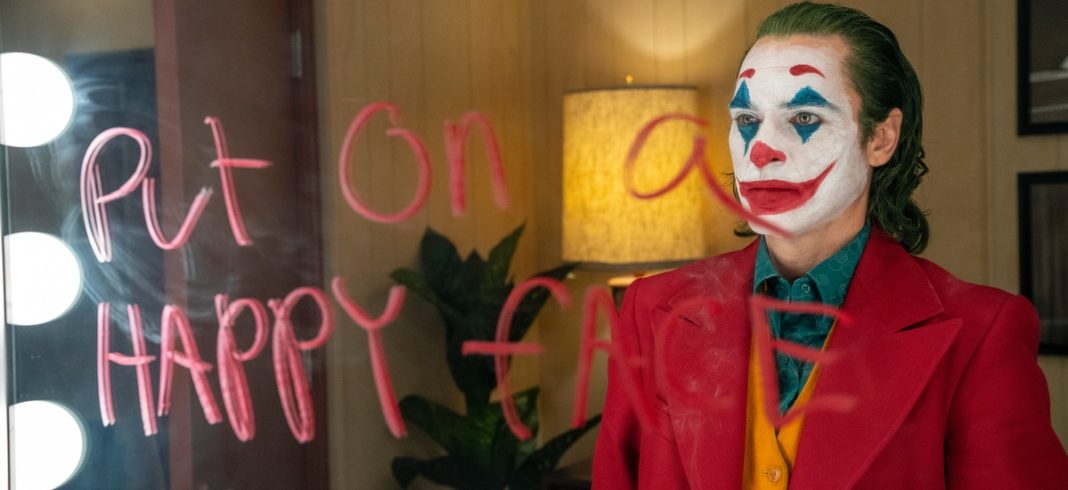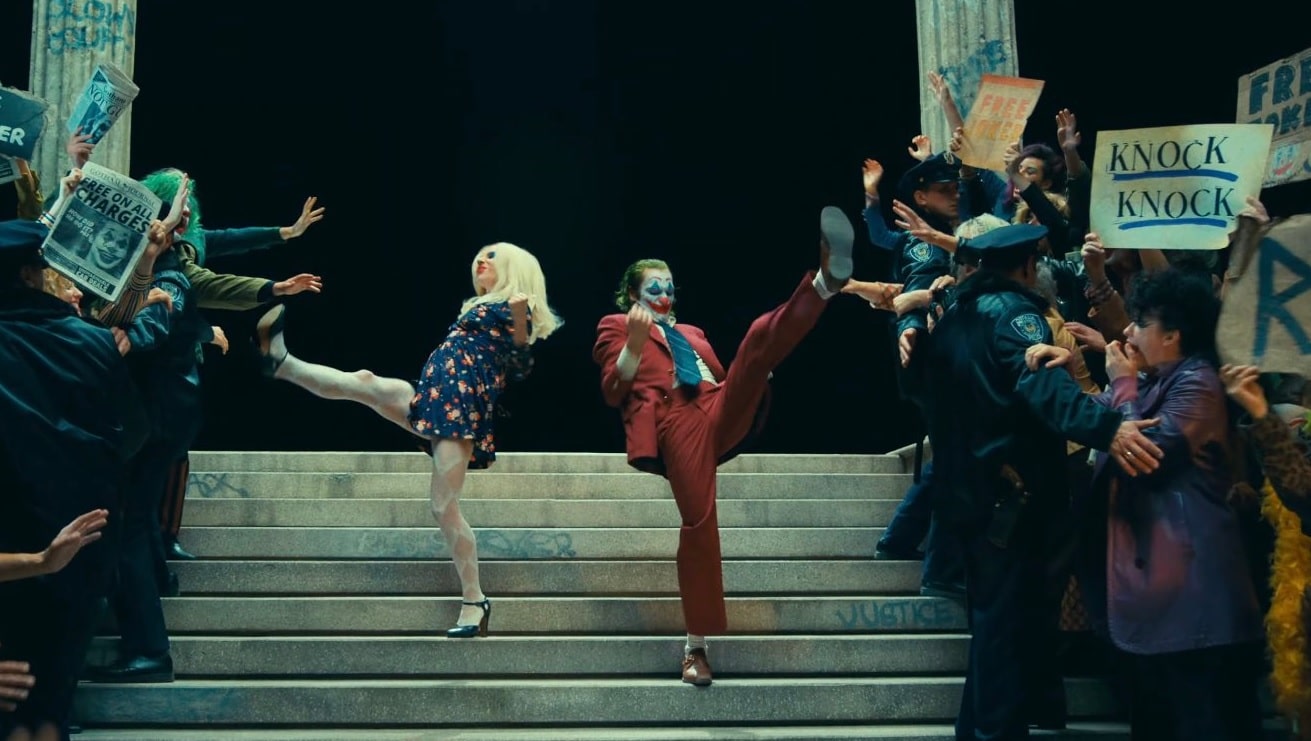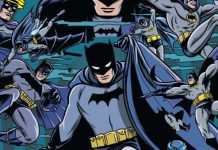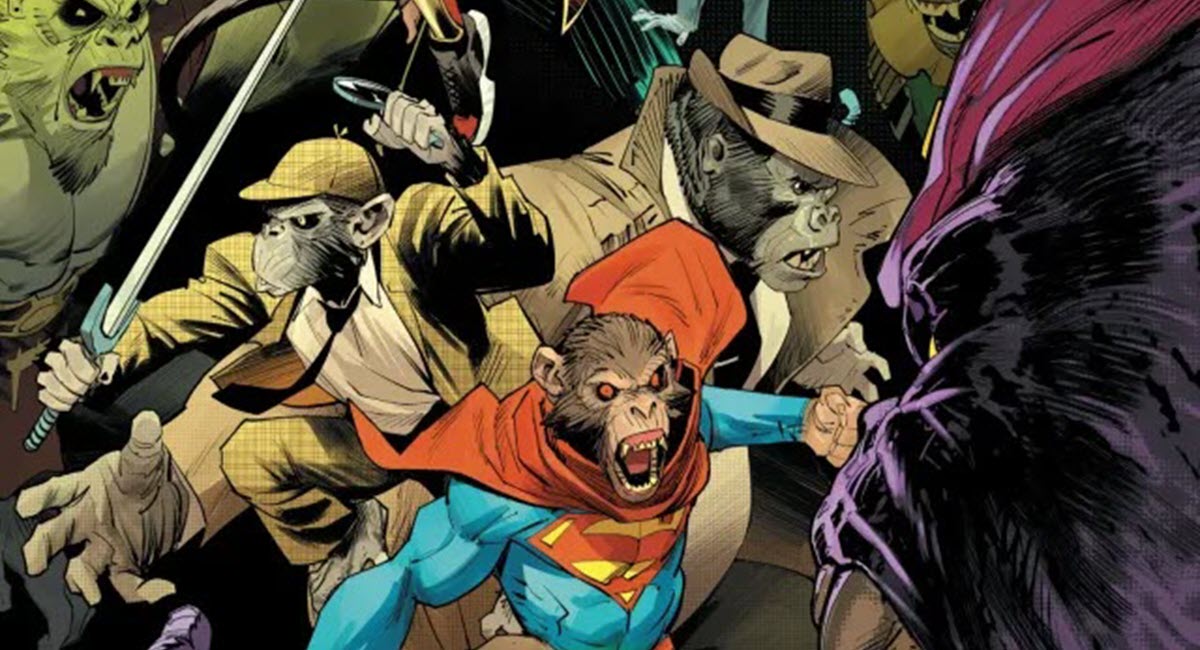“What do you get when you cross a mentally-ill loner with a system that treats him like trash?”
The Joker posits this question at the end of his cinematic origin story, tidily summarizing the film’s narrative for both his literal and figurative audience. I’d say these are spoilers, but Joker’s destination is pre-ordained by the character’s iconic status in pop culture. We all know The Joker is a bad guy, and Joker aims to tell us why. So the meat of this movie is really the stuff in the middle. Because no one’s just born this way, right?
There’s a reason to be skeptical about the concept of this movie, particularly a dark, gritty, true-to-life, awards-contender version of it. Comics have proved in multiple iterations of The Joker’s origin that it’s best kept as multiple choice. There’s a fear in his ambiguity. It’s a fear the decades-old character invokes in an even more relevant way now. What drives seemingly average men to the brink of mass murder? A bad day? A bad life?
I went into Joker willing to write off concerns about the premise as well as the mixed early TIFF review from my colleague, Kay-B. Because cynicism aside, Joker has a unique opportunity to delve into that question in a new, timely way. And in a few aspects it does deliver. We get a visually dazzling film with a beautiful score and gut-wrenchingly emotional and physical performance from Joaquin Phoenix as the titular character. It’s also well-crafted by director Todd Phillips, who has an eye for pacing and tension. But underneath the window dressing and the pretense of the two big questions — WHO and WHY — Joker has no answers. Instead it borrows wholesale from old films like The King of Comedy and trades in long-debunked, tired tropes about the violence of a mentally ill patient who’s been off his meds too long.
We spend about half of Joker getting to know down-on-his-luck Arthur Fleck, that self-described mentally ill loner trapped in a system that treats him like trash. Fleck dotes on his aging mother, works hard to make kids laugh by dressing up like a clown, and struggles with even basic social interactions due to a neurological condition known as Pseudobulbar affect, which makes him burst out into uncontrollable laughter at the most inopportune of times. We’re told he’s on seven medications, although we’re not given any specific diagnosis beyond that general “mentally ill” descriptor. All we know is that the worst part about having a mental illness, as Fleck writes in his journal, is people expect you to behave as if you don’t.
So that’s Fleck. And by all accounts, he’s an average guy just struggling to get by. Which brings us to the second half of Joker’s recipe for a killer: the system that treats him like trash. The streets are filled with rats, the wealthy are thriving while the poor are suffering, and it’s getting crazier out there every day. Eventually enough is enough, and Fleck gets stepped on too many times. In an act of self-defense that turns murderous, Fleck kills some preppy Wall Street types who are drunkenly harassing a fellow passenger on a subway car before turning with violence on Fleck too. Stories emerge of the killer clown who came for the rich, and the poor of Fleck’s home hold this killer clown up as a symbol. They start to dress like him, stage protests, and terrorize the city.
The idea of “the system” that tears the social fabric of Gotham and Fleck’s life apart is vague and mostly described as economic disparity, likely because it’s a simple target. Whether you’re left-wing, right-wing, or apolitical, it’s hard to feel much sympathy for the lofty 1 percent controlling the rest of the country. It’s an easy way out for a film that wants to say something about “the system” but isn’t really interested in taking any real stance at all other than “it’s bad.” Which part? And for whom? Director and co-writer Phillips won’t say, as he opts not to take inspiration from actual events of civil unrest, which are often triggered by acts of injustice perpetrated against a community. Instead “the system” pushes Gotham’s poor to the brink when they decide to riot in celebration of the murder of some random rich guys. Not in protest or in rage at the murders, of which they approve, but as a sort of violent, happy mayhem at large. Because society, man.
I think there’s a knee-jerk pre-reaction to this film that feels political: that the left will hate it for what it has to say, specifically. I felt the opposite. It had almost nothing to say at all. The depiction of mental illness is problematic, not because it’s intentionally making a controversial point, but because it’s lazy and uninformed, like the rest of the movie. And lazy would be fine for an entertaining film that simply embraced The Joker’s chaotic evil essence and let it prevail. In fact, the final 20 minutes or so of the movie are actually really good, as Phoenix finally settles down into a pitch-perfect portrayal of the character we’ve all been waiting for. But we waste 90 minutes getting there, extorted by a movie that really wants its audience to feel sympathy for a relatable man and the bad things that happen to him, mostly produced by circumstances beyond his control, while also expecting that audience to buy into his flimsy transformation into a murderous agent of chaos. It’s a tough sell from the start, to be sure, and the script doesn’t have the goods to deliver, which lets down the technical feats and perfections built around it.
But hey. You’ve always been dying to know why The Joker laughs, and now you’ve finally got your answer, right? No? Oh. Me neither.









I won’t disagree because I haven’t seen the movie yet but I find it interesting that people are singling out this film for having “nothing to say” when, let’s face it… hardly any superhero movie has anything to say.
Nothing but platitudes written by committee design to please the greatest amount of people possible. Sure, this one purports itself a little bit as a movie with a message but still…
My Joker was Cesar Romero back in ’66. I’m not going to watch this at all. I’ll boycott this movie. Screw DC until they stop putting out violent garbage.
I’ve been watching fans go berserk over the last couple of days, after Martin Scorsese said that comic books movies — and Marvel movies in particular — are “not cinema.” He’s right. They’re long TV episodes.
JOKER would not exist without a couple of Scorsese’s early films.
I don’t think there is sufficient source material that covers the nuance on the transformation of the man into the joker, especially from a mental health standpoint. The origins of the joker have always been shrouded in ambiguity with the exceptions of a few comic storylines, one being the killing joke. To expect anything specific in this portrayal of the character evolution that takes place removes you from objectively judging the journey that this character takes. Having the notion that the film maker needs to make an ‘informed’ representation on mental health with regards to the joker is preposterous. This movie is an interpretation of the character, not a love letter.
“This movie is an interpretation of the character, not a love letter.”
The dudes who are reportedly cheering in theaters for the Joker’s violence might disagree with that. For them, the movie IS a love letter, and the Joker is their hero.
‘The dudes who are reportedly cheering…’ I have know idea where you’re seeing the movie but I’ve seen it twice and literally no one is doing anything of the sort, at least in Chicago
“To expect anything specific in this portrayal of the character evolution that takes place removes you from objectively judging the journey that this character takes.”
This is incoherent gibberish, a fanboy trying (and failing) to sound intellectual.
At ‘Bill’, you don’t need to be a fan boy or an intellectual to see the obvious fallacies in this review. But hey, constructive point you made there buddy
How does the movie “want you to feel sympathy” for him? Sounds like your just projecting. An overtly biased and subjective review.
the person who wrote the article doesn’t understand a single second of the film. This movie is critique of OUR society : how it is ruled by a small group of rich man, how they saw the rest of the population (lazy,clowns,etc.), how neoliberalism is destroying every single state aid – like mental support in the movie – in the name of the marker or in the name of ”the state doesn’t have money”. And how all of this is destroying people, pushing them to their limits, mentally and physically, how the became depressed not because of some problem in the brain, but some big problems in the society. And people who don’t see class struggles in society like the person who wrote the article or deniro in the movie, will always see that the riots are the problem…but the riots are not the problems, they are the symptoms of a sick mad capitalist society.
As usual, comicsg—-s use pompous, pseudo-intellectual language to defend a beloved property.
“An overtly biased and subjective review.”
Shane, reviews are opinions. They’re not supposed to be objective. Got it? Clear enough?
“how neoliberalism is destroying every single state aid”
The movie is set in the early 1980s, when the conservative Reagan administration (and its allies on the state level) was cutting such aid and putting mentally ill people on the street. Read Frank Miller’s Daredevil from that era. There was a 1981 issue where the govt. grant keeping Nelson and Murdock afloat was cut.
“removes you from objectively judging the journey that this character takes.”
I’ve been on this “journey” before, in movies called Taxi Driver, The King of Comedy, and Fight Club.
At ‘Bill’, I guess you’re the only one who watches movies and pays attention? Lol
It’s unfortunate that you’re carrying every movie experience you ever had going into a new movie but hey, you must really have a hard time doing or experiencing anything unless it hasn’t already happened to you. Looking through those Intro to Film 101 goggles most be a life to live.
“Nishant” is probably too young to have seen or heard of the movies Todd Phillips rips off in JOKER. There’s also some V FOR VENDETTA in there. At least Phillips steals from the best.
If only Travis Bickle had worn a purple suit and clown makeup, “Nishant” would probably have seen his movie. And he would probably regard it as the masterpiece he sees JOKER as.
‘Bill’ I dont think there’s a living soul who hasn’t seen taxi driver, fight club, the king of comedy, or v for vendetta. If you think any work of art can’t draw inspiration from other sources then you very much are living in a closed box. Growing up in the early 90’s doesn’t give you tunnel vision but it’s still a learned trait, as it is quite evident with the stunted drivel you’re spouting.
“Nishant” said: “Growing up in the early 90’s doesn’t give you tunnel vision but it’s still a learned trait, as it is quite evident with the stunted drivel you’re spouting.”
Try the early ’70s, Mr. Fanboy/Comicsgater/Incel.
“worried that virgin women will kill us all, so maybe Warners should shelve the movie.”
One major studio movie, Universal’s “The Hunt,” was shelved this year after Trump and other right-wingers tweeted attacks on it.
“I’m a liberal, probably to the left of Bernie, but if I hear one more of my progressive friends express disappointment that there weren’t a dozen theater shootings this weekend, I am going to throw up.”
I haven’t encountered anyone who expressed disappointment that there weren’t shootings. You must follow some very bizarre Twitter feeds.
“You idiots are going to get Trump re-elected.”
I loathe Trump but I agree that attacking him on social media isn’t going to drive him from office. If people want to get rid of Trump, they’ll have to turn out and VOTE. I hope the Millennials don’t stay home and pout, like they did when Bernie wasn’t nominated in 2016.
Comments are closed.